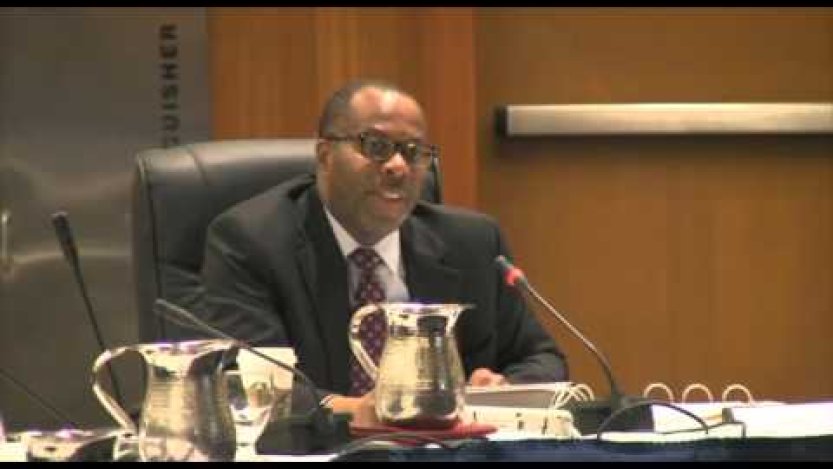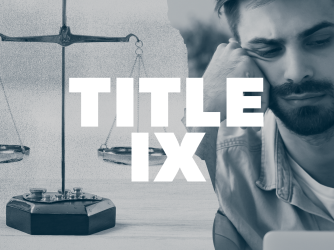Table of Contents
University of California Regents to Consider ‘Principles Against Intolerance’ Again Following Amendment

Update (2:37 p.m. EDT): Without further discussion, the UC Board of Regents today unanimously adopted the amended version of the Statement.
Today, the University of California (UC) Board of Regents will consider whether to adopt a “Statement of Principles Against Intolerance,” which yesterday was unanimously adopted by a committee after amending a controversial portion of the Statement. The version adopted yesterday by the Committee on Educational Policy initially deemed “anti-Zionism” a form of unwelcome discrimination or harassment at UC campuses. Although UC officials made welcome efforts to dissuade critics of the policy, the amended Statement could still be interpreted as a mechanism to ban or punish negative political speech about Israel, on the grounds that it’s anti-Semitic.
As FIRE’s Will Creeley explained at length last week, the Statement contained several areas of concern. Among other things, the Statement was ambiguous as to how university administrators were expected to (or could) respond to “intolerant” or “biased” speech, as the policy was unclear whether it could be interpreted as a vehicle to punish or suppress what administrators deemed to be “intolerance” or “bias.” Under the Statement, UC community members are “expected” to balance exercise of First Amendment rights with their “responsibilities” to “mutual respect and civility.”
Further, as Will pointed out, the Statement conflated “anti-Zionism” with “anti-Semitism.” This raised concerns that, in conjunction with the Statement’s ambiguities as to whether it was an enforceable policy, the Statement could be interpreted to punish political speech (in the form of criticism of the state of Israel), even though political expression is at the core of the First Amendment’s protections.
To these ends, the Committee on Educational Policy made a brief amendment to the Statement before unanimously adopting it.
The amended Statement now reads, with additions in bold:
Anti-Semitism, anti-Semitic forms of anti-Zionism and other forms of discrimination have no place at the University of California.
While this narrows the scope of the policy, it still risks an interpretation that criticism of Israel is, itself, anti-Semitic. The distinction of when or whether particular speech critical of Israel is or is not anti-Semitic is unclear, leading to the possibility that some speech will be chilled, whether by an administrator’s action or by a speaker’s concern that an administrator will interpret speech critical of Israel as anti-Semitic and the policy as enforceable.
With respect to the Statement’s ambiguity as to whether it presents a policy enforceable against students, faculty members, or student organizations, UC General Counsel Charles F. Robinson addressed the committee and asserted, forcefully, that the policy was merely “aspirational, rather than prohibitory.” Robinson went on to state unequivocally that the Statement does “not provide a basis for action or enforcement against a member of the community.” The Statement is intended, in Robinson’s interpretation, to encourage UC campuses to use their own free speech, as institutions, to add to campus dialogue. Regent Bonnie Reiss added that the First Amendment protects “hate speech,” and that “[t]hose of us who support the First Amendment and love the First Amendment have to protect hate speech that breaks our hearts.”

This is a welcome interpretation of the Statement, but it’s one that should have been explicitly set forth in the Statement. After all, not all administrators applying the Statement are likely to have heard Robinson’s remarks to the committee, nor are students trying to understand what expression may or may not be protected given the policy’s plain language. For that matter, little prevents the UC system as a whole from later re-interpreting the policy in the absence of clear language within the policy itself.
In sum, the solitary amendment of the Statement of Principles Against Intolerance is a welcome change, but FIRE remains concerned that the policy, if adopted as it currently stands, could be interpreted to permit action against students, speakers, faculty members, or student organizations. The Regents will have an opportunity to clarify the Statement when they take up the matter today.
If constituents on UC campuses find themselves facing discipline, the threat of sanctions, refusals to permit speakers on campus, or other restrictions as a result of the Statement, they’re encouraged to get in touch with FIRE.
Recent Articles
FIRE’s award-winning Newsdesk covers the free speech news you need to stay informed.


FIRE statement on campus violence and arrests

BREAKING: New Title IX regulations undermine campus free speech and due process rights
